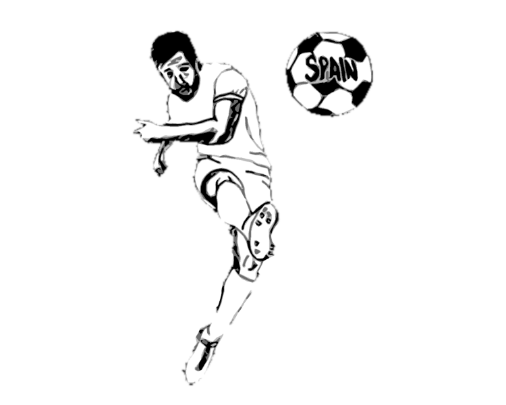Illustration by Ari Libenson
In recent years, a movement for Catalan independence from Spain has been gaining popularity and relevance, finally coming to a climax on October 1, 2017. According to Catalonia’s government, approximately ninety percent of Catalan voters chose independence from Spain on this date, yet Spain’s Prime Minister Mariano Rajoy rejected the result, stating that the referendum was unconstitutional. The future of Futbol Club Barcelona, a Catalan soccer club and one of the world’s most renowned professional teams, originally hung in the balance of this vote, but Rajoy seems to have made their decision for them.
Many Catalans consider their region to be more of a monetary asset to Spain than a part of a community. Catalonia reportedly contributes $12 billion more in taxes to Spain than it receives. The overwhelming opinion in Catalonia is that independence is long overdue, and regardless of the Spanish government, they will put up a fight.
Futbol Club Barcelona is the pride and joy of Catalonia. They’ve won the Union of European Football Associations Champions League five times, among many other European Cup titles. They also happen to be the third most valuable sports franchise in the world. They currently play in the highest division of the Spanish soccer; so when it was announced that Catalonia would vote on the independence issue, the team’s next steps were unclear. As stated by Gerard Figueras, Catalonia’s sports minister, the team would have the option to join another country’s soccer league if the vote was yes. The offer has also been extended to Catalonia’s two other teams, Espanyol and Girona. Catalan independence may also affect the Spanish national team, as Spanish citizenship would have to include Catalan members or the team would lose valuable players, which could prove crucial in the upcoming World Cup.
England’s Premier League is an appealing choice for Barcelona; its 4.6 billion dollars in annual broadcast rights is almost quadruple that of La Liga’s. Barcelona’s addition would work out extremely well for the Premier League as well, since they would be adding one of the most iconic teams in the world. Other options for Barcelona include Italy, France, and Germany, although England seems to be the way to go from a business standpoint.
However, Rajoy’s rejection of Catalonia’s referendum has interrupted speculation surrounding the club. If Catalonia does not gain independence, as the Prime Minister has attempted to ensure, Barcelona will be expected to stay in La Liga. No decision will have to be made and unfortunately, it doesn’t look like one will be made anytime soon, as the Spanish government is uninterested in an independent Catalan state.
Police cracked down on unarmed protesters on Sunday; over eight hundred people were admitted to Catalan hospitals and treated for various injuries. Spain’s foreign minister Alfonso Dastis argues that police’s actions were “proportionate” to the situation, with which the Prime Minister wholeheartedly agrees. Spain is obviously doing everything in its power to delay Catalonia’s independence day, which means that its soccer clubs are going to stay put for now.


